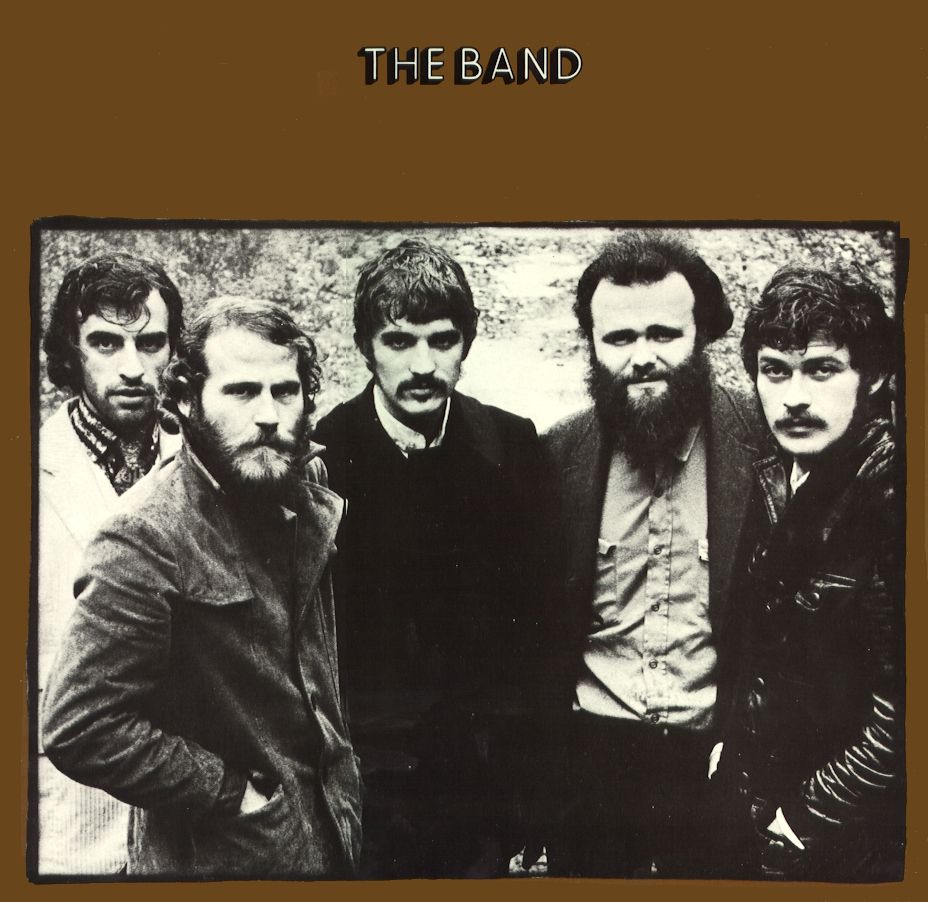Now Playing
Current DJ: Michael B.
Hindu Love Gods Raspberry Beret from Hindu Love Gods (Giant) Add to Collection
Requests? 773-DJ-SONGS or .(JavaScript must be enabled to view this email address)
 For this edition of Rediscovering Our Record Collections, I am examining one of my favorite albums of all time, a classic rock and Americana milestone.
For this edition of Rediscovering Our Record Collections, I am examining one of my favorite albums of all time, a classic rock and Americana milestone.
An almost all-Canadian ensemble, The Band emerged in the late 1960s with a blend of older and newer sounds associated with the American South and gained a wide audience in the process. Their second, self-titled album is often considered their best work, and as of June, 2013, the statistically compiled website Acclaimed Music ranked it as #40 on their list of the most acclaimed album of all time.
Before debuting as their own ensemble, The Band toured for about a decade behind such acts as rockabilly singer Ronnie Hawkins and, most famously, Bob Dylan on his mid-'60s tours when he switched to electric instrumentation. Guitarist Robbie Robertson and other members of The Band developed a fascination with the South while touring there, though only one member of The Band, Levon Helm, hailed from there. Their first album, Music From Big Pink, was released in 1968 and marked them as an influential force in the music world, and with such classics as "The Weight" and their cover of Dylan's "I Shall Be Released," the album still resonates with listeners today.
However, their second album, according to many, was even better. Released in 1969 and containing their only Top Thirty single, "Up on Cripple Creek," as well as "The Night They Drove Old Dixie Down" (later covered and made a hit by folksinger Joan Baez), The Band showed a greater reliance on original material (no tracks penned or co-penned by Dylan here, for example), as well as various group members rotating duties on multiple instruments. The three lead singers still sound distinctive separately, but when they harmonize on a song like the quiet, rustic "Rockin' Chair," I get chills because their harmonies sound so close as if they were family.
I first heard this album around 1999 from a library copy of an old (possibly 1980s) mastering of it on CD, and though I was in middle school, I knew I liked it. At the time I didn't know much about country music or some of the other influences so present on this album, but what moved me were the vocals and the arrangements, often with horns. There's something utterly haunting about how spare "Rockin' Chair" or the piano-based "Whispering Pines" sound, but the more full-band, rollicking numbers like "Look Out Cleveland" work well, too.
To be fair, I had trouble understanding some of the more confusing lyrics, and I still do, so I would say now that this is one album where listening to it relatively passively serves it well. It works well under close scrutiny of the rich arrangements, of course, but sitting back and absorbing the music can still make for a rewarding experience. That said, lyrics in a song like "The Night They Drove Old Dixie Down" demands to be heard, and Helm's plaintive vocal and the direct story affect people across the U.S.
As Greil Marcus wrote in his famous chapter on the Band in his 1975 book Mystery Train, "It is hard for me to comprehend how any Northerner, raised on a very different war than [the song's character] Virgil Kane's, could listen to this song without finding himself changed." I've often thought of this song as about the cost of war on all sides, whether or not one sympathizes with any Confederate cause.
So this album has lyrical as well as musical ambition, though it may have taken me a while to fully understand that. The musical ambition comes in its attempts to evoke various traditions of the South, though of course the question again arises: how did a group with four Canadian members out of five make such convincing American music? You can watch a video blog I made in 2012 investigating the question of what defines this album as "American music" here.
In 2006, I wrote a column for my college newspaper calling this one of my 5 favorite albums, arguing that The Band made better "American music" than most American bands. They seem to illuminate the idea of the outsider understanding the mainstream or inside of culture better than those immersed in that culture from birth. But though I'm not sure I'd call the album perfect today, it's still one of my favorite albums, and at least for this album and Music From Big Pink, The Band may be my favorite band. Maybe that's because I am an outsider in some ways, but I think more likely it's the range of music on the album, the arrangements, the vocals, and the unique world it creates that get me. Thankfully, I have a vinyl copy today where all of these unique qualities come through even more, and I will be listening to The Band for many years to come.
Next entry: Friday iPod/MP3 Shuffle—Happy Birthday Roy Wood Edition
Previous entry: Weekly Voyages: Friday November 8 to Thursday November 14